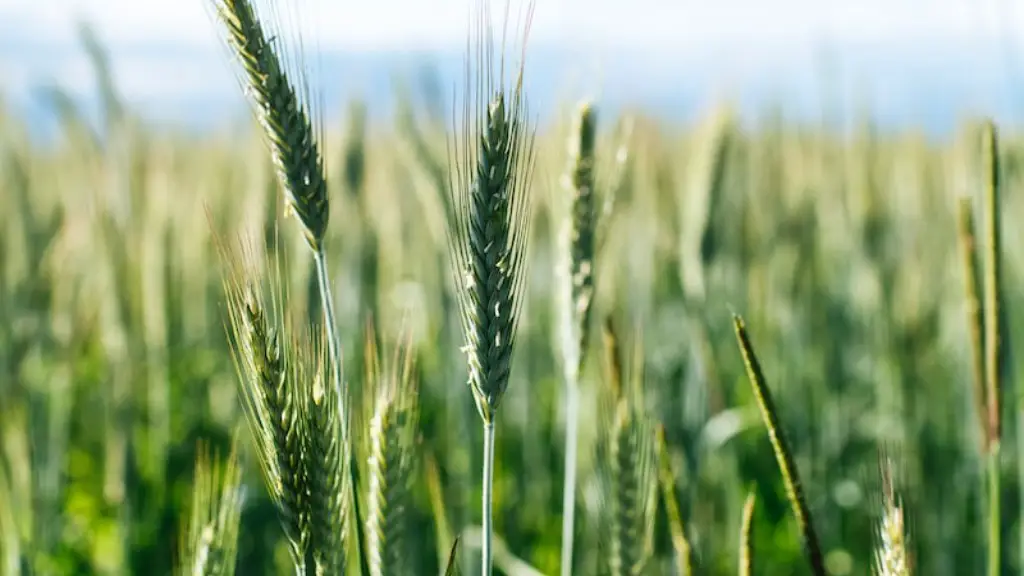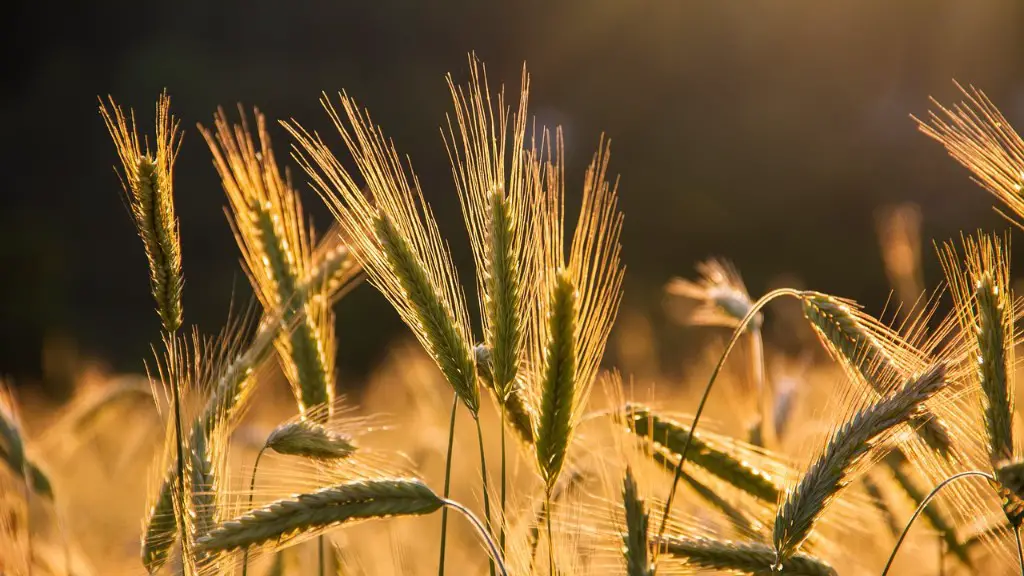Agriculture is vitally important to the US, both as an industry and from a societal perspective. It allows us to produce the food and products we need to sustain us economically and nutritionally. This importance manifests itself in several different ways.
Firstly, agricultural production helps to drive the nation’s economic growth. In the US, agriculture on the whole represents a $1.06 trillion industry, accounting for nearly 8% of the nation’s GDP. It also creates jobs and opportunities, with more than 16 million people employed in the agricultural sector.
Secondly, US agricultural production helps to ensure a safe and abundant food supply. This is key in keeping people fed, providing critical nourishment during difficult times such as those brought on by a natural disaster. In many countries, the agricultural sector provides a lifeline during food insecurity.
Thirdly, agricultural production helps to improve the environment. Many conservation efforts, such as the preservation of wetlands, happen, in part, due to the efforts of agricultural businesses and landowners. This can lead to an increase in local bio-diversity, improved water quality and increased carbon sequestration.
Fourthly, agriculture can help to reduce poverty. It allows people in poor, rural parts of the country to build up wealth, access markets, and even set up their own businesses. As it diversifies away from commodity production, agricultural development has become an increasingly viable path towards economic stability.
Fifthly, cattle ranching and livestock production help to support the nation’s rural communities. Livestock production provides a significant source of income for producers and can be a great source of employment, particularly in rural communities where employment opportunities are often limited.
The Economic Impact of Agriculture
The economic impact of US agriculture is undeniable and far-reaching. It not only helps to create jobs and economic growth, but it also serves to provide a safe and abundant food supply. Agriculture is one of the most important factors in a nation’s economic and societal success and the US is no different.
Agriculture’s contribution to the US economy is vast and essential, employing over 16 million people. It helps to generate more than $600 billion in domestic and international sales each year, with exports accounting for nearly a quarter of US Farmer’s income in recent years.
US agriculture helps to nurture and sustain the nation’s rural communities and provides an essential resource in times of food insecurity. Many farmers have embraced conservation efforts, helping to preserve biodiversity, improve water quality and reduce carbon emissions.
Agriculture also has an important role in reducing poverty in the US and other developing countries. It allows people in rural areas to access markets and build wealth, providing a pathway to economic security.
Agriculture has the potential to continue to boost the US economy long into the future. Its importance to the nation’s economic and social wellbeing will only continue to grow as demand for food and other agricultural products increases.
The Societal Benefits of Agriculture
Agriculture is also important to US society as a whole. It allows us to produce abundant, safe and nutritious food for our families, communities and nation; and it is one of the most important ways in which people provide for their families.
US farmers are also a vital resource in the fight against hunger and food insecurity. During emergencies and difficult times, the agricultural sector is one of the most important forces in helping to provide essential supplies and resources.
Agriculture also serves to benefit society in more indirect ways, such as by providing recreation and community development opportunities. The US has many agricultural areas that people can visit to observe nature, go fishing or hiking, as well as support local businesses and organizations.
In addition, US agricultural activities can help to improve the environment. Farming practices that preserve and protect land, such as wetland conservation, can help to support biodiversity, reduce carbon emissions and clean up water sources.
Finally, US agricultural production helps to sustain rural communities. Farmers and ranchers provide a source of income, jobs and other economic opportunities for those who live in remote regions. These jobs provide an invaluable source of stability and growth for rural areas.
International Impact of US Agriculture
US agriculture also has an important role to play on the global stage. US companies are some of the largest and most influential in global agricultural production and international trade. This influence can help to create a more stable and equitable global food system that can benefit everyone.
In addition, US agricultural production can help to reduce poverty in other countries. US-based agricultural development projects can help to provide food security, improve yields and create jobs, ultimately leading to an improved quality of life and higher standards of living.
US agricultural assistance also helps to promote democracy and good governance. Farmers and communities in other countries often find themselves at the mercy of corrupt government officials or powerful landowners. US agricultural assistance can help to shift the balance of power, enabling marginalized populations to gain greater access to resources and opportunities.
Finally, US agriculture can help to foster international cooperation and collaboration. By working with other countries, US companies and farmers can help to promote mutually beneficial trade agreements, develop sustainable farming practices and ensure greater food security for all.
Importance of Research and Development
US agricultural research and development play an important role in the nation’s agricultural industry. By investing in research and development, US producers can stay ahead of the curve, remaining at the forefront of cutting-edge production practices.
The US has invested a great deal of resources into finding solutions to the complex problem of global food insecurity. Through the development of new technologies and sustainable farming practices, the US is helping to ensure a secure and stable food supply for all.
In addition, research and development can help to improve the environmental impact of agricultural production. By researching improved methods of farming and land management, US producers can help to reduce the negative impacts of agriculture while also improving crop yields.
Finally, research and development can help to reduce operating costs and increase US production efficiency. By investing in new technologies and processes, US producers can remain competitive in an increasingly volatile global marketplace.
Conclusion
The importance of US agriculture to the nation’s economic and social wellbeing is undeniable. It creates jobs and opportunities, helps to sustain rural communities and drives global trade and international collaboration. US agricultural production also helps to reduce poverty, improve nutrition and conservation efforts, and serve as a source of food security. Research and development also plays an important role in helping to ensure that US agricultural production remains at the forefront of global production efforts.





